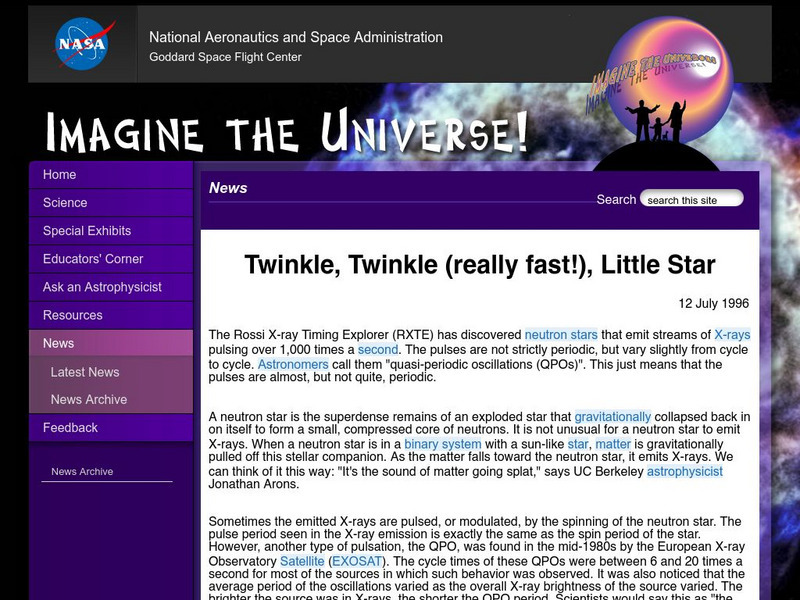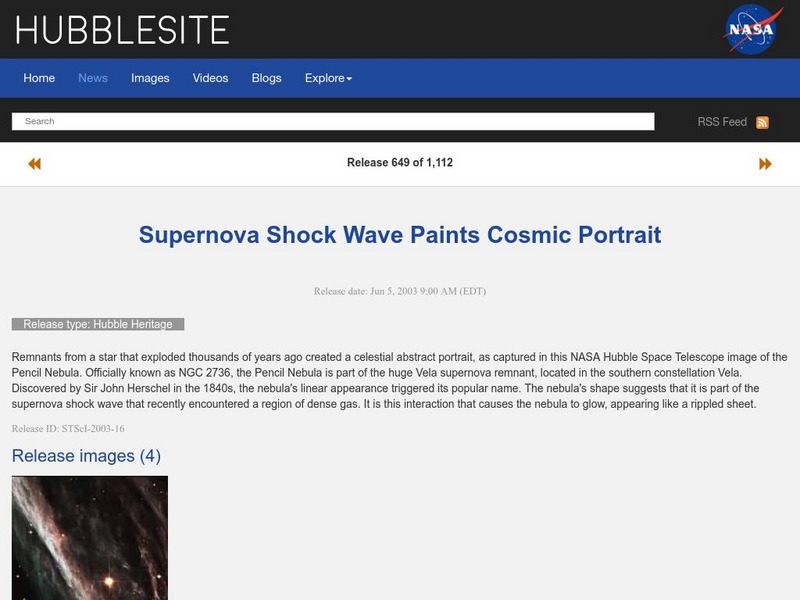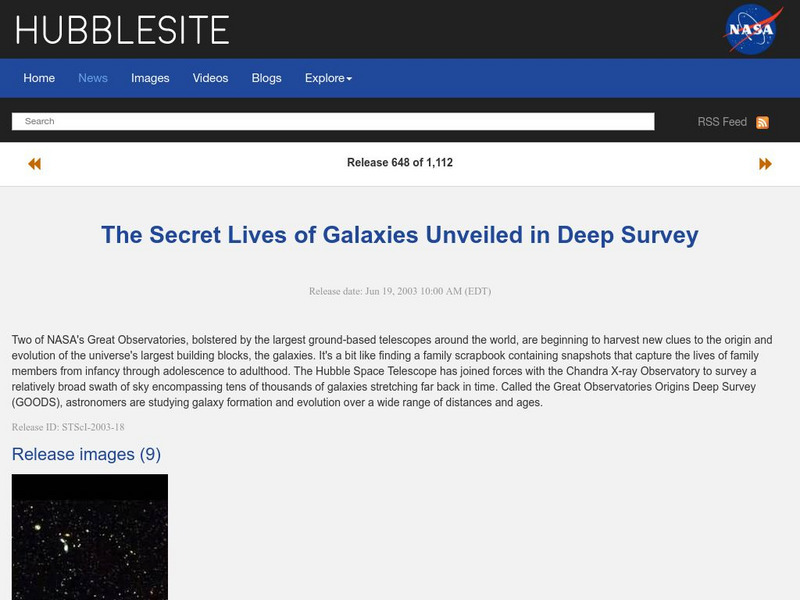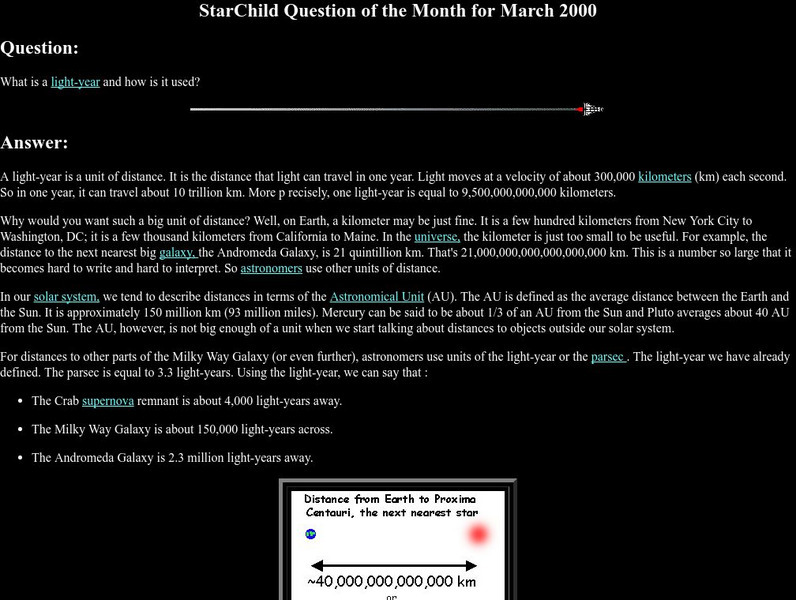Other
The Astrolabe: Home Page
This site provides a very general overview of astrolabe principles with links to other pages for more detailed information.
Treehut
Suzy's World: Black Holes
Use this site to find out what is a black hole in space and try an experiment.
NASA
Nasa: Imagine the Universe: "Twinkle, Twinkle (Really Fast!), Little Star"
"The Rossi X-ray Timing Explorer has discovered neutron stars that emit streams of X-rays pulsing over 1,000 times a second." Visit this site to read the rest of this article. Site offers additional resources as well as a Teacher's Corner.
Space Telescope Science Institute
Hubble Site: Supernova Shock Wave
This site from the Hubblesite highlights an article written about a supernova shock wave. Provides images as well as video footage. Site offers links to fast facts, a question and answer section as well as related links.
Space Telescope Science Institute
Hubble Site: Secret Lives of Galaxies
This site is provided by HubbleSite from NASA. "Telescopes around the world are beginning to harvest new clues to the origin and evolution of the universe's largest building blocks, the galaxies." Site offers links to images, video,...
NASA
Nasa Star Child: What Is a Light Year and How Is It Used?
This is a definition and example of how distance is measured in astronomy, such as the distance between our earth and the stars.
Science4Fun
Science4 Fun: Al Khwarizmi
Brief biographical sketch of Muhammad Ibn Musa Al-Khwarizmi, famous mathematician who developed Algebra.
National Institutes of Health
National Library of Medicine: Paracelsus, Medical Revolution of the Renaissance
This site explores the work of Paracelsus, a leading physician during the Renaissance. It provides biographical information on the great physician, gives an overview of Renaissance humanism, and explains how different theories of medical...
Curated OER
Astro Lab: Space, a Contemporary Vision of the Universe
Explore how our contemporary understanding of the universe came to be. This overview looks at the history of three main areas of study, namely space, time, and the arrangement of matter.
Other popular searches
- Famous Astronomers
- Early Astronomers
- Major Astronomers
- Ancient Astronomers
- Greek Astronomers
- Report on Astronomers
- Astronomers Measure Distance
- Women Astronomers
- Female Astronomers
- Fumes Astronomers
- Five Early Astronomers
- Famous Astronomers Quizes








